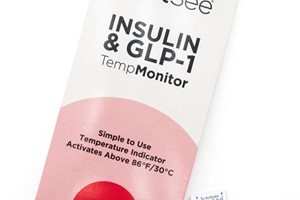Cells within the human body communicate through various mechanisms, with exosomes emerging as significant mediators of this intercellular dialogue. These minuscule spheres, laden with fats, proteins, and genetic material, play a crucial role in regulating diverse physiological processes, ranging from immune responses to organ function. Recent research from Columbia University, published in Nature Nanotechnology, sheds light on a novel application of exosomes in delivering immunotherapy directly to challenging lung cancer tumors through inhalation.
Led by Dr. Ke Cheng, a professor of biomedical engineering at Columbia, the study marks a significant advancement in three areas of scientific interest: the therapeutic potential of exosomes, inhalable treatments for lung ailments, and the targeted delivery of potent immunotherapies like interleukin-12 (IL-12). Unlike systemic chemotherapy, which can induce widespread side effects, the localized delivery of mRNA-based treatments via exosomes holds promise for minimizing adverse reactions while enhancing treatment efficacy.
Cheng's team focused on lung cancer due to its high mortality rate and the limitations of existing therapies, which often leave the affected organ severely compromised. By harnessing the natural properties of exosomes, which can be sourced from the body or cultured cells, the researchers aimed to explore a safer and more effective alternative to conventional treatments. They employed mRNA encoding IL-12, a promising yet historically problematic immunotherapy, to equip exosomes with the necessary payload for targeted cancer treatment.
In preclinical studies using mouse models, inhalable exosomes demonstrated superior efficacy compared to liposomes, another type of drug carrier, in delivering IL-12 to lung cancer cells. Notably, this approach elicited a robust immune response against the tumors, characterized by increased infiltration of cancer-fighting T cells and activation of other immune cells. Furthermore, the treatment exhibited vaccine-like properties, priming the immune system to recognize and combat future cancerous growths.
The study's findings underscore the potential of inhaled exosomes as a versatile platform for delivering various therapeutics to the lungs and potentially other organs. Beyond lung cancer, researchers envision applications in treating pulmonary hypertension and acute lung injuries, among other conditions. While inhalable cancer treatments are not yet available outside research settings, ongoing efforts aim to translate promising preclinical results into clinically viable interventions.
Dr. Raghu Kalluri, a prominent exosome researcher, acknowledges the significance of the study's approach, emphasizing its implications for targeted drug delivery beyond cancer treatment. The burgeoning field of exosome research, fueled by its diverse therapeutic and diagnostic applications, underscores its potential to revolutionize medical practice across multiple disciplines.
Despite the promising outcomes, transitioning from preclinical studies to human trials poses formidable challenges, including scalability of exosome production and regulatory considerations. However, ongoing innovations in drug delivery technologies, coupled with growing interest from the medical community, offer hope for advancing inhalable therapies into clinical practice.
University of Columbia














